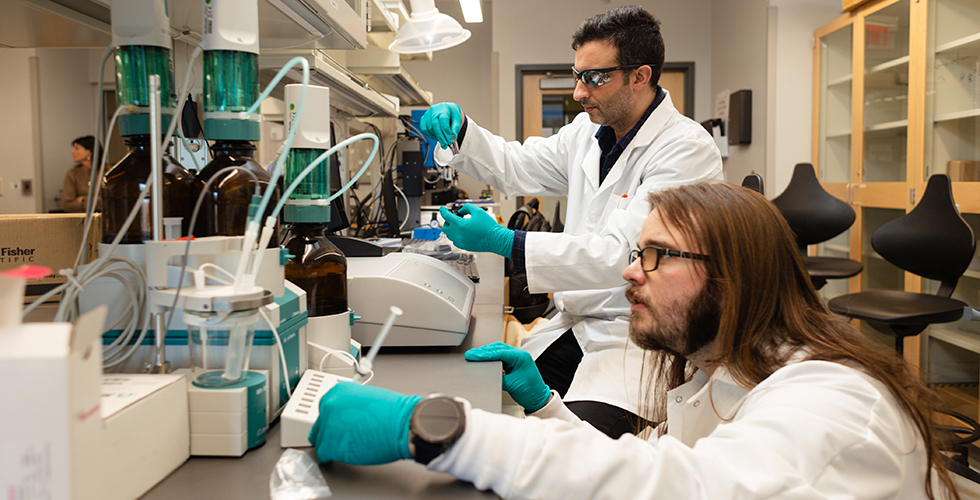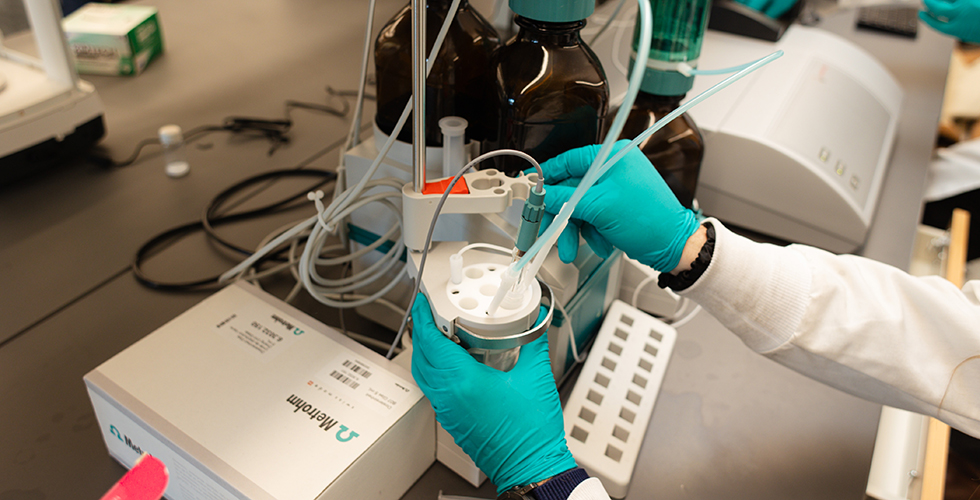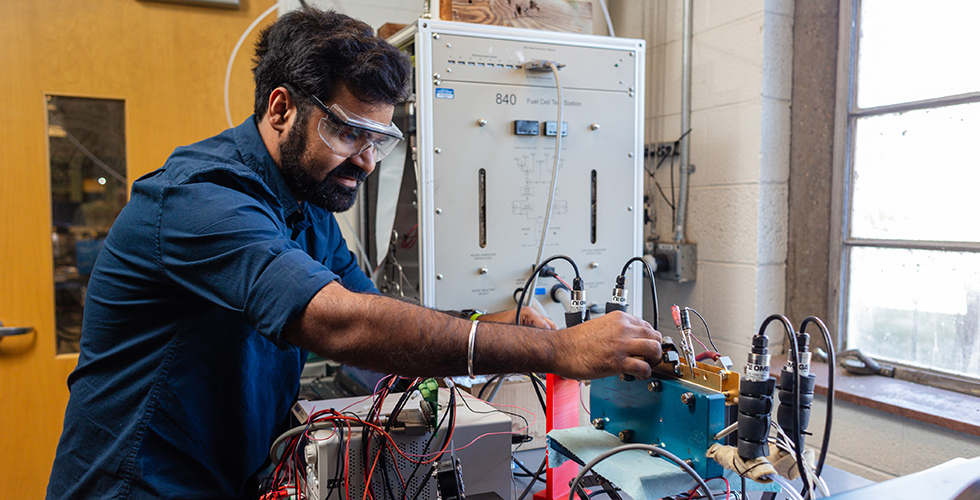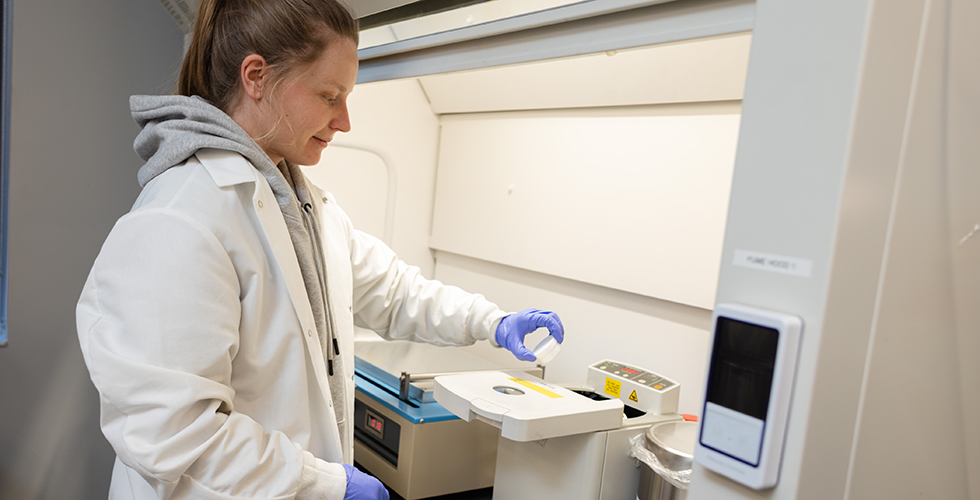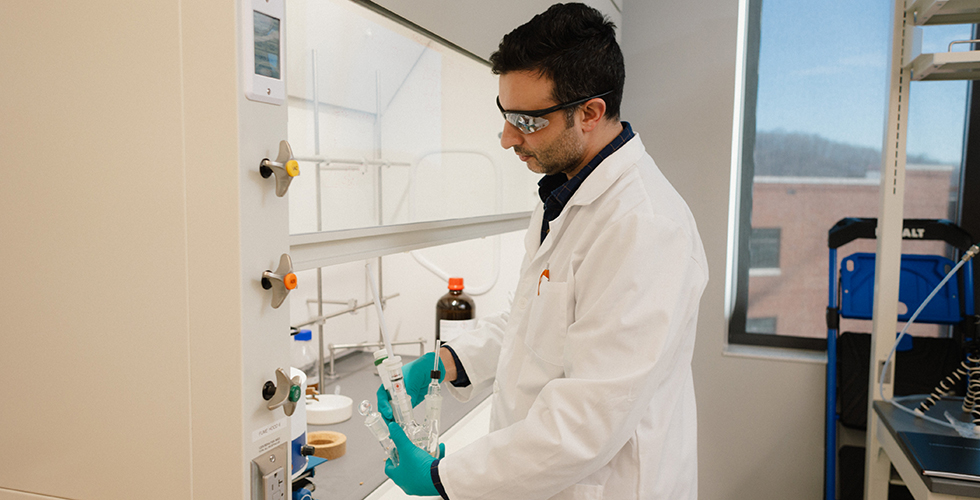Welcome to the Electrochemical Energy Storage and Conversion Laboratory (EESC). Since its inception, the EESC lab has grown considerably in size, personnel, and research mission. The lab encompasses over 2500 sq.ft. of lab space divided into three main labs:
- Fuel Cell Diagnostics and Design Laboratory (FCDDL)—The FCDDL specializes in the development of advanced experimental diagnostics and computational tools for polymer electrolyte and microbial fuel cells.
- Advanced Projects Laboratory—The APL was created in 2011 to maintain and grow an array of ongoing research concepts and funded programs that fall outside the realm of batteries and fuel cells.
- Flow Battery Diagnostics and Design Laboratory (FBDDL)—The FBDDL was created in 2010 to respond to the growing need to understand methods of transport in flow battery systems.
Advanced Multiphase Performance Model
The Advanced Multiphase PEFC Performance Model predicts the performance of a single cell, of which the geometric parameters, material properties, transport parameters and the operating conditions are specified by the user. The project was sponsored by Nuvera Fuel Cells and the Department of Energy’s Office of Energy Efficiency and Renewable Energy. Download the performance model.

Matthew Mench was named to the “World’s Most Influential Scientific Minds: 2014” list by Thomson Reuters. Reuters studied research and releases across the globe and measured the total number of times that other researchers, professors, and students cited the material in their own findings. Rather than just basing their result on which people had been cited the most overall, Reuters looked at which individual papers within the results had been cited the highest number of times. Those findings placed Mench in the top 1 percent of all research scientists across the world.

Fuel Cell Engines is an introduction to the fundamental principles of electrochemistry, thermodynamics, kinetics, material science and transport applied specifically to fuel cells. Presently adopted by various universities as a standard text, it covers the scientific fundamentals applicable to all fuel cell systems, but special focus is given to polymer electrolyte membrane fuel cells. This book provides a fundamental perspective that will enable proper technical decision-making. A solutions manual is also available for the problems and exercises for instructors.
